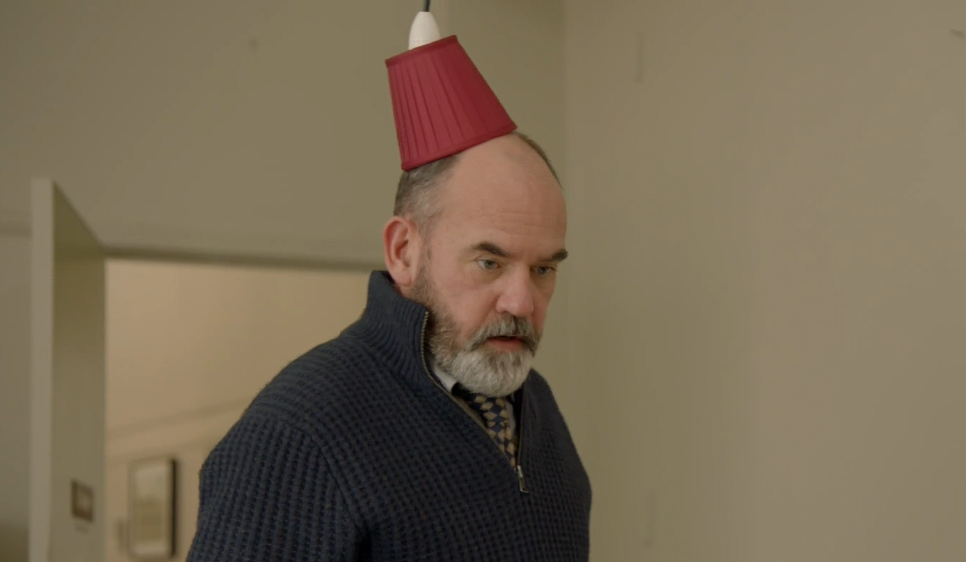Australian Tumbleweeds
Going Back to Prep
Press release time!
Be prepared! Nakkiah Lui gears up for the apocalypse as cameras roll on Preppers
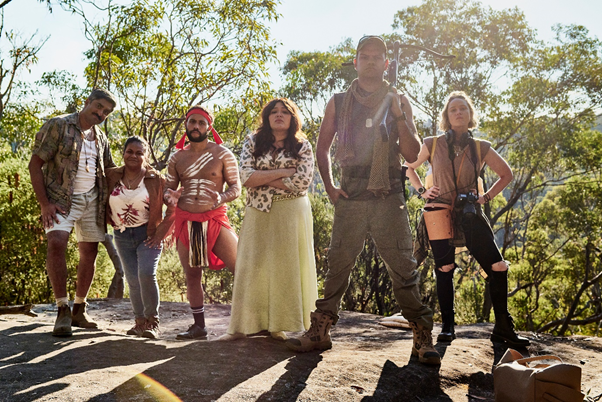
Chum Ehelepola, Ursula Yovich, Aaron McGrath, Nakkiah Lui, Meyne Wyatt, Eryn Jean Norvill in Preppers.
Photo by Noel McLaughlin.
ABC and Screen Australia are thrilled to announce that filming is underway in Sydney on the highly anticipated comedy, Preppers. Starring the multi-talented Nakkiah Lui, the six-part series will air on ABC and ABC iview later this year.
Written by Lui and Gabriel Dowrick, the all-star cast includes Ursula Yovich (Mystery Road), Chum Ehelepola (The Newsreader), Meyne Wyatt (Mystery Road), Aaron McGrath (Glitch), Eryn Jean Norvill (STC’s The Picture of Dorian Gray), Jack Charles (Cleverman), Grant Denyer (Family Feud), Christine Anu (Black Comedy), Miranda Tapsell (Top End Wedding), Brooke Satchwell (Mr Inbetween), Luke Carroll (Total Control) and singer Kate Miller-Heidke.
Directed by Steven McGregor (Black Comedy), Preppers follows Charlie (Nakkiah Lui), a young Aboriginal woman whose world crumbles around her after experiencing a personal, cataclysmic event. Escaping the fallout, Charlie finds herself at the centre of a hilariously mismatched community of doomsday preppers.
With climate change, economic catastrophe, terrorism, pandemics, meteor strikes, hostile AI, nuclear proliferation, alien invasion it looks almost certain that the end is nigh. So, when the end comes—no matter how it happens— maybe the craziest thing is to NOT be prepared?
Nakkiah Lui and Gabe Dowrick said, “It’s very exciting for us to see the comedic world we’ve created come to life with such a great cast and crew, and we are also particularly pleased that Preppers is being made (and will hopefully be seen) before the eventual apocalyptic event(s) that wipe out humanity…”
Sally Riley, ABC Head of Drama, Entertainment and Indigenous said, “It has been a real joy watching Nakkiah go from strength to strength, from her first writing and performing roles in Black Comedy, to short form in Kiki & Kitty and now her first half hour series, with Preppers.”
Penny Smallacombe, Head of First Nations Department at Screen Australia said, “Nakkiah Lui has a track record of creating boundary-pushing comedy and we’re proud to support her and the rest of the talented creative team in bringing this hilarious and clever series to life. Who doesn’t need a few lessons in Prepping!”
Producers Liz Watts and Sylvia Warmer said: “We’re thrilled to be partnering again with Nakkiah Lui, as well as Gabe Dowrick, on Preppers, along with a brilliant cast and crew. We can’t imagine a more blackly comic and pertinent series for our time. Preppers will be smart, relatable and very, very funny. It also might make you shed a tear.”
Preppers will be filmed and post produced in Sydney.
Damn, we were hoping for a minute there that the next season of Rosehaven was about to take an exciting new direction.
At least the ABC PR department wheeled out that classic comedy line “highly anticipated” to once again describe a show pretty much nobody had heard of until this exact press release. Must have been those Grant Denyer stans bombarding the ABC switchboard yet again.
How To Stay Awake
The continuing presence of How To Stay Married on Australian television screens is one of those mysteries that isn’t really a mystery in the 21st century. We’re all increasingly aware that while the organisations and institutions around us claim to have our best interests in heart, in reality their agendas almost never involve things like “giving the people what they want”. Because who in their right mind wants more of How To Stay Married?
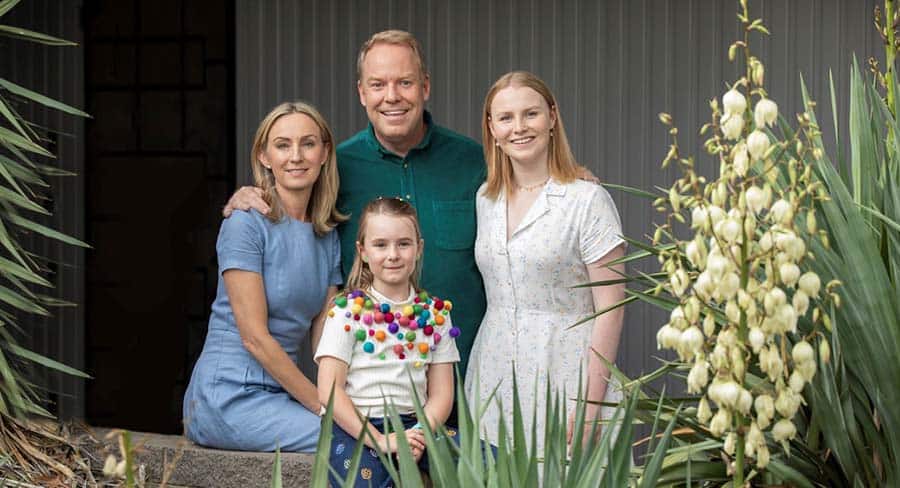
As a thrilling vision of the sitcom as combination homewear store and greeting card rack, How To Stay Married pretty much delivers all the bland, forgettable, generic laughs you expect to get from a “humour” column in a high-end weekend newspaper supplement. There didn’t need to be a third season of this. There didn’t need to be a third episode of this.
Previous seasons of Married struggled with the whole “sitcom” side of things thanks to being based on a situation that was last topical in the late 1950s: wouldn’t it be hilarious if we made a show about a regular family… only the dad stayed at home while the mum went back to work?!? And then repeatedly had the mum stay at home as well because Lisa McCune is easily the best thing about this show and if Peter Helliar wasn’t the creator / writer / director / showrunner / entire reason this keeps getting made his character would have been bumped to an occasional guest role by week two.
Oh yeah, the reason why this keeps getting made because rating less than half a million viewers every week in prime time isn’t it: Channel Ten wants to stay in the Peter Helliar business. This is a sitcom as vanity project, a show nobody really gives much of a shit about but it strokes the ego of the star so whoops, here it is again. Remember Ten’s other recent sitcom, Mr Black? That actually got an overseas development deal (because America didn’t realise it was a rip off of Kingswood Country, which was itself a rip off of All In the Family), yet a second season remains nowhere to be seen because nobody who appeared on it is a regular co-host on The Project.
(Here’s a fun question: has Peter Helliar ever fronted – not appeared in, but headlined – anything that was successful? Answers on the back of a question card from his gameshow Cram!)
Unfortunately for people who like to laugh, Peter Helliar is the Scott Morrison of comedy, a daggy dad suit worn by a cold-eyed marketing man who does his best work seething with rage. Even How to Stay Married can’t deny it, with this season’s big twist being that while his sitcom wife wrote a book about him being a shit dad, he’s the one making bank off it thanks to his relentless marketing of his spin-off podcast.
Hang on a sec. So a woman writes a book about how her husband is shit, which is presented as a bad thing because it’s a betrayal of her husband even though he actually is shit. Then we’re told the book itself is (ha ha) a flop and she’s washed up, but it all worked out because the shit husband is now a successful semi-celebrity thanks to her hard work. But don’t worry: next week she gets her face rubbed in her failure yet again.
Either this show is making a remarkably subtle point about the way white guys always come out on top despite putting in the least effort, or it’s punishing the female lead for speaking up about being unhappy with a husband who is basically shit. One is smart and insightful, the other leaves a bad taste in your mouth: guess which one is the most likely?
The cruelty of the plot aside, usually sitcoms based around this kind of dynamic – one’s lazy, the other’s highly strung – work by getting us to side with the highly strung character. We can all sympathise with being frustrated by someone else, especially if they don’t seem to care yet everything works out for them. It’s certainly possible to make a sitcom where the moral is “haha, caring about things is for chumps” – it worked out great for Animal House – but that’s basically an antagonistic relationship. It’s fine for workplace sitcoms where people are stuck with each other, but in a relationship comedy there’s got to be some reason why there isn’t a murder by week five.
How To Stay Married gets around this by being completely half-arsed. It’s The Peter Helliar Show so obviously he’s the one we’re meant to sympathise with even though he’s playing an annoying lazy screw-up. Why does his wife stay with him even though she literally wrote a book about how he’s shit? Why is Scott Morrison PM?
The idea of the hot wife and the slobby husband is a sitcom cliche so tired it’s been mocked for decades (“it’s a grim life for the thin wife”, as one article put it). And yet here we are, serving it up yet again in Australia in 2021. Beyond that – and some decent comedy performers utterly wasted in supporting roles – there’s nothing here.
Each week this serves up plots so lightweight they barely take place at all. Will the older daughter get a job at a cinema? Is a bully stealing the younger daughter’s lunch? If a relative tried to tell you this stuff you’d be yawning halfway through the second line of their text message: how many millions of dollars did Ten pay for this crap?
Getting three seasons of a sitcom on Australian commercial television is an amazing achievement in the 21st century. Getting three seasons of a sitcom that seems to have made no impression whatsoever on anyone is even more impressive.
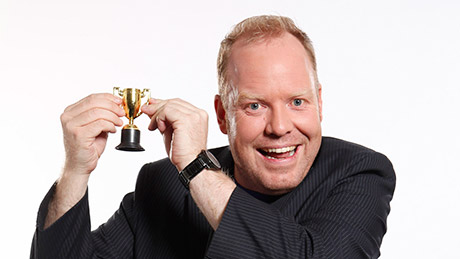
Eight Days a Weekly
The Weekly‘s been at least half a dozen shows over the years, each less successful than the last. So it shouldn’t really be a surprise the spinning contest wheel finally stopped on “year-in-review-but-it’s-a-week”. Not because it’s a good idea: a year-in-review works because 75% of the show is powered by “oh yeah, I remember that”, which isn’t really an option when you’re talking about the previous week no matter how many online articles you read about the ever increasing pace of everything oh God remember that Tik Tok video where the guy did the thing?
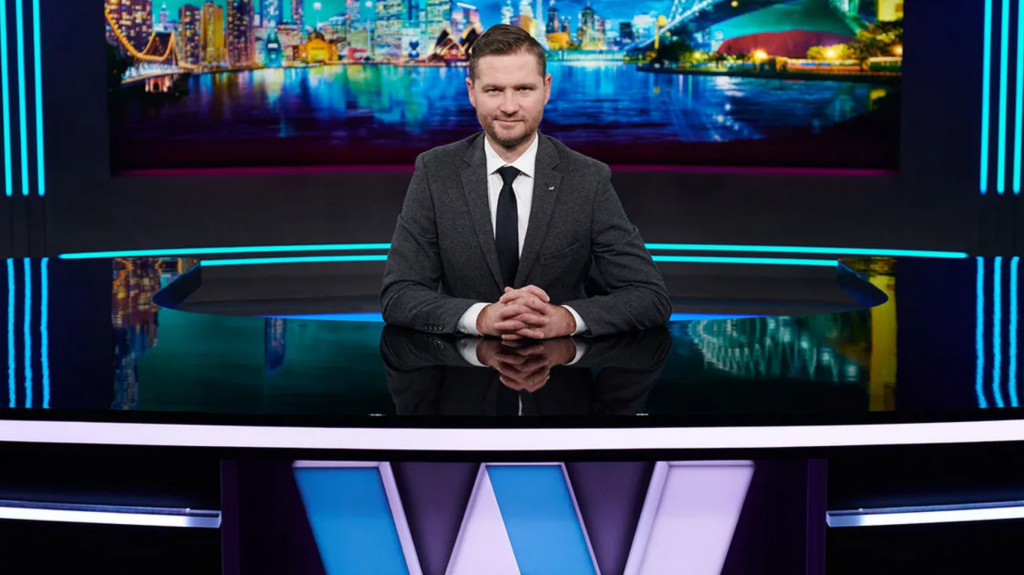
But wait, doesn’t The Weekly also feature “The Study”, that thrilling segment where they explain important things in a sarcastic voice thus creating news comedy? Sure, if the idea that making markets freer usually means the rich guys buy up everything else is news to you then you’re in luck pretty much every week, but it’s hard to shake the feeling it’s a segment produced by a crack team of researchers an algorithm trawling the shoutier sections of twitter.
Ha! Had you fooled: they’re all shouty sections on twitter. For this kind of thing to work it really needs to come up with behind-the-scenes news that’s actually news, not just something already discussed online. Today’s world is so fast paced we’ve already forgotten what happened last week complicated there are interesting and surprising news stories out there about just about everything: making a show that’s social media, only television is a waste of pretty much everything.
In the past The Weekly dodged this by featuring people who weren’t Charlie Pickering, thus giving us something to stare at besides his hairline. Sure, the interviews were boring and Tom Gleeson really feels like part of that whole cultural moment that led to Donald Trump when you think about it, but at least they forced the rest of the show to pick up the pace. Now? The constant rhythm of news story / cheap shot / next story / cheap shot / another story / Pickering just makes a slobbering sound / news story results in a show that feels like it could be going for an actual week.
It’s not that The Weekly feels inessential; that’s been baked in since week one. It’s that now it feels cheap. The original format – well, the one they settled on after the early stretch where Pickering did location reports and so on – was uninspiring but solid: monologue, first cast segment, sketch, news segment, interview, second cast segment, we’re done. It felt like a television show.
Now The Weekly feels like it might as well just be a cross to ABC News 24 only the snarky office dickhead’s hosting while the professionals are taking a smoko. It’s just a news recap; the big news stories have already been chosen by the actual news, so there’s no real editorial decisions being made about what to cover. They do their best to be funny about those stories, but if they don’t have any decent jokes the stories get covered anyway.
Whatever the previous format’s flaws and Jesus Christ there were a lot of them, The Weekly – judged on its own terms – had a reason to exist. Now? Get Pickering to host the regular news and that’s 90% of the show sorted. Ha ha, Pickering rolled his eyes after the opposition leader said the nine words he’s allocated for “balance”; satire isn’t dead after all.
Vale Fisk
Fisk, the best Australian sitcom for years, has been and gone. We will miss its deft plotting, consistent laughs, background humour (the ‘Gruber Ass.’ caps!) and perfect costumes (the brown suit!). And while in many ways Fisk was a traditional, going-for-laughs, half-hour sitcom, it still feels like writer, director and star Kitty Flanagan has brought something unique to the table.
It’s certainly not easy to think of another recent Australian sitcom which has been this good at getting laughs from the dynamics between characters. Every character in Fisk, from those with just one line, to those who were in almost every scene, was instantly funny and recognisable. From the noise-sensitive café workers who banned Helen (Flanagan) in the first episode, to Helen’s boss Ray (Marty Sheargold), a man whose off-handed blokey-ness captures the essence of 95% of white Australian men over 50, they were all perfect.
But where Fisk really struck gold was in characters who were pushy, po-faced and overbearing, like Helen’s omnipresent line manager Roz (Julia Zemiro) and Helen’s exacting stepfather Victor (Glenn Butcher). Both had a lot to say about how Helen could be a better human being, but neither seemed aware of their own ridiculousness, which was often hilariously shown-up by Helen when she tried to follow their advice. Helen’s re-working of her brown suit with a Bedazzler, an over-literal interpretation of Roz’s suggestion that she be a bit more polished, was a prime example.
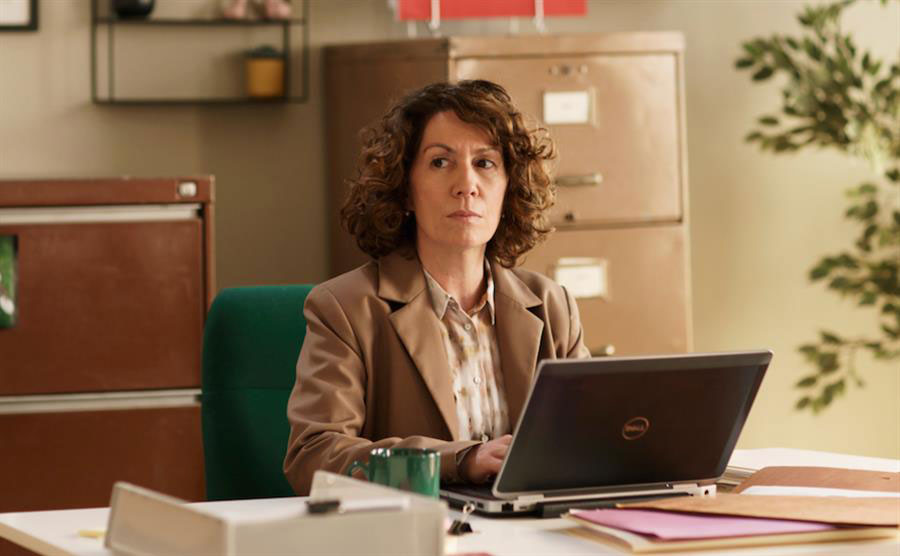
Episode six ended with a moment of high drama, as Helen’s Dad Anthony (John Gaden) collapsed, and with a moment of triumph, as Helen’s attention-to-detail secured her a local business award. We also discovered that Helen had retained her job at Gruber & Associates, leaving the way open for a second series.
Naturally, we hope Fisk will return, but with no announcement from the ABC so far, we cannot be certain. That said, the show was generally well-liked by critics, industry and fans, and seems to have developed a strong following.
According to TV Tonight’s ratings, Fisk rated higher than its lead-in, The Weekly with Charlie Pickering, for four weeks of its six-week run. Even better, the timeshifted ratings show Fisk beat The Weekly… five weeks out of six.
And while beating a show which regularly pads itself out with clips of right-wing commentators drinking whiskey is something any competent program should be able to do, the risk-adverse ABC seem to need a fair amount of convincing these days that we want sitcoms that are funny and not half-arsed dramas. Let’s hope better ratings than The Weekly… is enough to do that for Fisk.
Spicks and Specks – the 12″ Mega Mix
Spicks and Specks is back! Again. And it’s like it never went away. Again. There was nothing particularly broke about the format when it was first retired – the original cast needed a break, the new cast were unloved – and there’s already been a couple of revivals with the old (now current) crew, so it’s no surprise it’s returned pretty much unchanged aside from the social distancing between panelists. Here’s hoping the audience aren’t social distancing from the show! Ha.
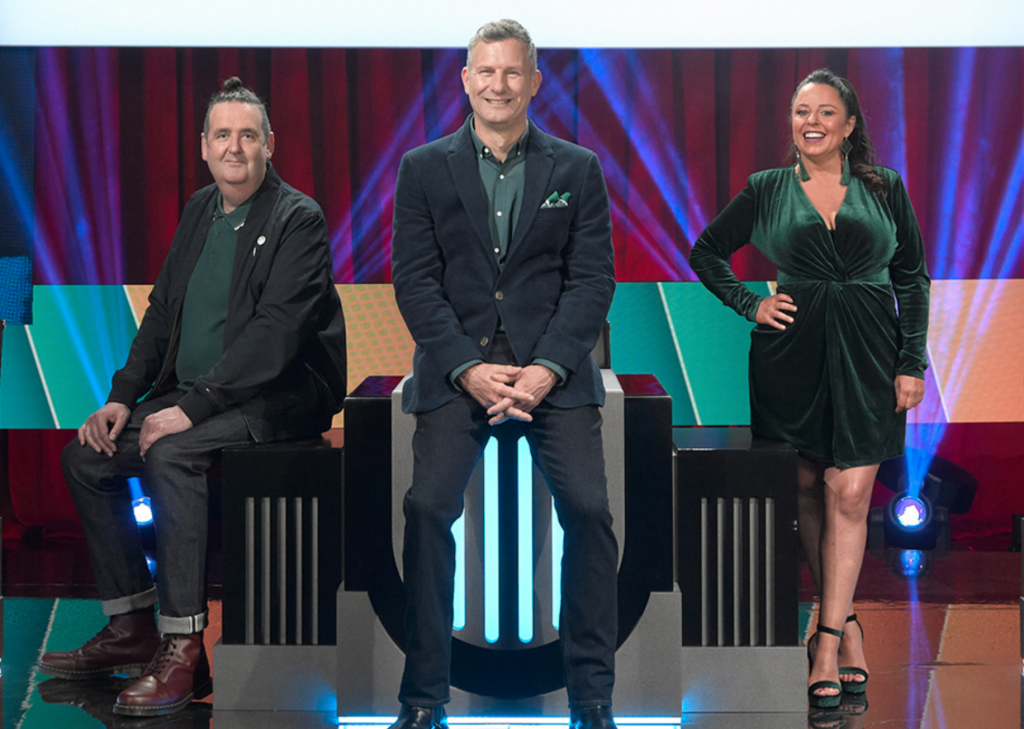
Like an old boot, it was pretty comfy to slip back into even if it is starting to smell a bit. Spicks and Specks‘ big strength has always been the subject matter: people generally know enough about music to have a chance of getting the questions right and be interested in the answers when they get them wrong. It’s more a sign of shallowness of the talent pool here (plus ABC management bungling) than anything else that the “all new” reboot tanked; with a format this strong, any even slightly competent hand-over to a new team should have been a no-brainer.
So with it all being business as usual for Australia’s favourite musical quiz, and presumably will continue to be for the next nine episodes to come, the question is: what’s the point? Obviously ratings, but by bringing everyone back to do the exact same thing one more time the series has been firmly shunted into the “nostalgia” section. The songs may be different – listen, isn’t that Billie Eilish? – but the tune remains the same.
It’s generally (if quietly) acknowledged these days that broadcast television is dying and nostalgia is one of the few things that can lure an audience back. If that’s the case – and that when the current audience dies out they’ll take television as we once knew it with them – then this kind of thing makes perfect sense. Why bother trying to make new television when there’s nobody new around to watch it?
But there’s another scenario. It’s perfectly possible that broadcast television will go the way of literally every other mass medium out there and find a lower, but still viable, level to operate on. Much like cinema used to be all things to everyone but is now aimed entirely at teenage boys and the over-55s, and novels used to cover all facets of the human experience but are now just romance and crime, and radio is… whatever it is now, broadcast television might go from being the one thing that united our society to, uh, the home of sports and live variety? Who knows.
The thing is, if that second scenario is the case, then the ABC really should – once again – be thinking about succession plans. Nostalgia will only go so far if they still have to run a TV network in a few years, and Spicks and Specks – solid format, strong nostalgia hook but a format that by its very (musical) nature has to move with the times – is exactly the kind of show they should be looking to upgrade.
No offense to the team captains, but the show needs at least one person in those chairs who seems like they grew up listening to music this century and if you’re looking for a comedian-slash-actor-slash-music buff they most definitely aren’t short on the ground.
Of course, the ABC could even come up with some new formats, hire some new talent, take a few risks with panel shows as they’re about as cheap as television gets and just generally give off the vibe that they wouldn’t mind pulling in a few new viewers every now and again. But that might involve comedy, and we wouldn’t want that now, would we?
After all, if ABC viewers really wanted to laugh they wouldn’t be watching Spicks and Specks.
Josh’s Gonna Josh
Everything’s Gonna Be Okay returned to Stan last week, and we all know what that means: loads of articles scattered across the internet all valiantly skirting around the fact that Josh Thomas makes television that’s basically just a human version of that fish tank C31 used to broadcast for hours at a time in Melbourne.
He’s said it himself: he’s not overly interested in character development, he’s not particularly interested in story. When you’re making television in the 21st century, that really doesn’t leave a whole lot to work with. Sure, things happen in Everything’s Gonna Be Okay, just like they did in Please Like Me; people bounce around like hyperactive children, then someone gets sad, then a relationship ends but the other character hangs around – awkward – then someone dies. Animals are cute!
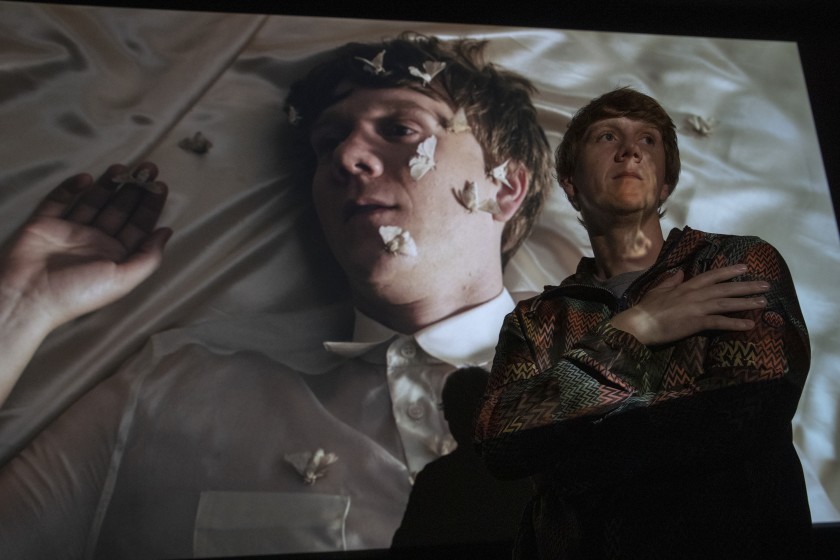
Sometimes a television series (or a movie, or art in general) can feel obtuse and unsettling in the way they portray people and relationships and yet still succeed because underneath there’s a basic understanding of how human beings work. Thomas’ work is the opposite. It feels like television made by someone who doesn’t actually care about other people beyond a handful of surface attributes, serving up a collection of characters who aren’t quite cliches (because Thomas does seem interested in certain kinds of relations – basically, his characters act like shits but want to be liked) but never really seem to exist in three dimensions.
He can get away with this because he makes shows focused on self-centered young people; twenty-somethings in Please Like Me, teens in Everything’s Gonna Be Okay. These aren’t overly realistic depictions of young people, but they are realistic depictions of how young people think about themselves – which is to say obsessively, while also desperately wanting to make connections with other people that they deeply care about but often don’t treat like real people.
Much like trying to make friends with your average teen, Thomas’ shows requires the audience to do all the hard work. They’re entirely about living in a bubble filled with feelings, like a twee band’s sunny day music video or a YouTube edit of all the big emotional moments from a reality show. It’s up to you to project onto the characters enough depth to make them worth caring about (okay, the actors do a lot of work here too); his characters are too busy with themselves to give a shit about you.
If you’re on Thomas’ wavelength – and going by the ratings, nobody is – then this is a full body-plunge into a cosy world where nothing matters except for a handful of things that matter so much you can hardly stand it. For everybody else, much like actually being a teenager, it’s kind of embarrassing and limited. Even teenagers don’t want to watch shows about (real) teenagers; if you can’t remake The OC at least remake Gossip Girl.
In recent years the boundary between comedy and drama has pretty much dissolved, and not in the old “this comedy’s having a dramatic moment” way. But Everything’s Gonna Be Okay seems to exist somewhere beyond even that, treating dramatic moments like jokes – something you drop in out of nowhere for impact and then move on.
And as for the jokes… yeah, we’ll get back to you on that.
Sex in the City 2: Back From the Grave
Press release time!
METRO SEXUAL RENEWED FOR SEASON TWO with 9GO! and OUTtv taking rights
Media release: Tuesday April 13, Sydney (AEST)
Production begins in Melbourne in June on season two of the Humdrum Comedy Metro Sexual. 9GO! has the exclusive Australian premiere rights and OUTtv are taking exclusive rights in Canada, South Africa and New Zealand, and non-exclusively in the US, UK, Australia and Republic of Ireland. Both networks continue to play season 1 alongside Crackle in the US.
Metro Sexual is the first Australian sitcom with all LGBTI lead characters. Filmed in mockumentary style, it follows the lives of doctors Stephanie Huddleston (Geraldine Hickey) and Langdon Marsh (Riley Nottingham), who work at Metropolitan Sexual Health. They are joined in the cast by Ryan Shelton, Shabana Azeez, Urvi Majumdar and Rebecca Massey, with more cast soon to be announced.
This season sees the show grow from 10-minute episodes to six x 30 minutes episodes after premiering on 9Go! and OUTtv in 2019 and 2020.
Riley Nottingham who both stars in the show and is a partner in Humdrum Comedy said: “We couldn’t be more thrilled to expand the world of Metro Sexual to a half hour sitcom, and excited to keep working with our partners at Nine and OutTV. During the times we all find ourselves in, we hope Metro Sexual can be an uplifting and heartfelt comedy experience for everyone.”
Geraldine Hickey who plays Dr Steph Huddleston said: “I’m so excited to be back doing Metro Sexual. Last season I learnt how to use a Duckbill Speculum so I can’t wait to see what’s in store for season two.”
Congratulations to all concerned! It’s amazing what being picked up by an overseas streaming service can do for a series 9GO! couldn’t get rid of fast enough*.
.
*”chances are it won’t be back”? Damn, there goes our membership in the snarky critics branch of the Australian fortune tellers and political pundits association.
Chris Lilley’s Ja’miezing
What is the logical next step for Chris Lilley after a series of race controversies have seen his TV shows pulled by broadcasters and streaming services alike? A podcast staring one of his characters, of course! As The Age describes it…
The audio series [Ja’miezing] re-acquaints audiences with Ja’mie King, the melodramatic private schoolgirl character who first became a household name in Lilley’s 2005 mockumentary We Can Be Heroes: Finding the Australian of the Year.
Ja’mie King, lest we forget, hasn’t been seen or heard from since 2013, when she was the star of Lilley’s mockumentary Ja’mie: Private School Girl, a show which infamously concluded with a scene featuring Ja’mie topless, an effect achieved by superimposing Lilley’s head onto the (partially-blurred) body of a teenage girl.
And given that Lilley’s portrayal of Ja’mie’s teenage sexuality was problematic in 2013, Lilley’s portrayal of Ja’mie as a sex-positive adult will, if anything, be even more problematic post-#MeToo. Certainly, large parts of Ja’imezing (now on Apple Podcasts and YouTube), are a pretty uncomfortable listen if you have any awareness of structural sexism.
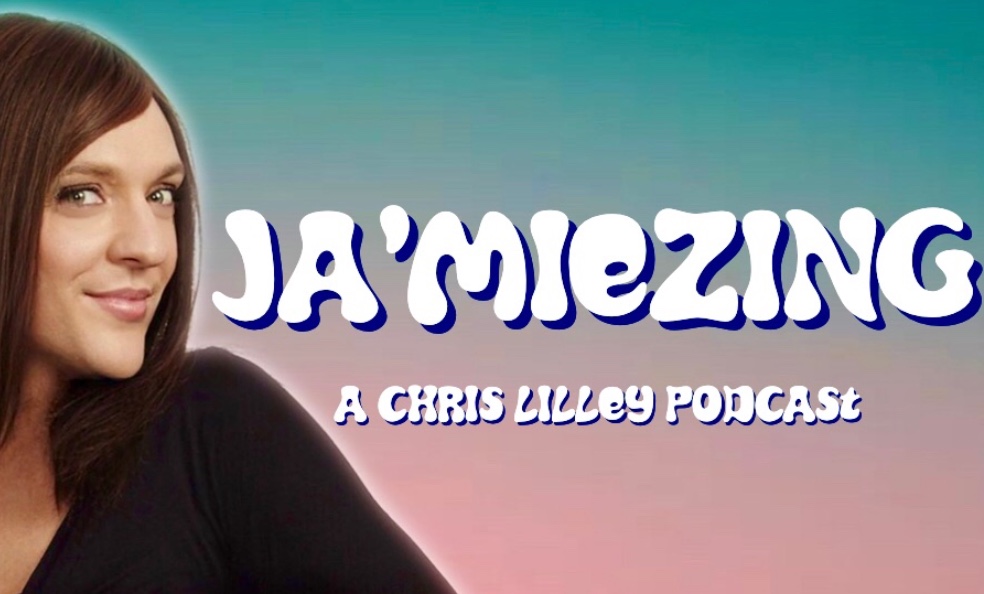
Lilley is famous for researching his characters, reportedly spending weeks observing teenagers in high schools and scouring social media and TV archives for inspiration. This led to gushing articles in the media about how realistic his characters are, articles which, with very few exceptions, failed to point out that his work isn’t without its problems…
What Lilley always forgets, perhaps blinded by the media hype which surrounded him, is that he, as a white cis heterosexual man, can’t just play a woman or a person of colour and get away with it, even if he has done some research into the type of person he’s portraying. His performance is always going to look problematic given the history of how the people he’s playing have been treated by the type of person he is.
In Ja’miezing, for example, Ja’mie is extremely frank about her sex life – something lots of women in their 20s are – but we discover that there are nude photos of her on the internet and that she is proud of this. She also talks about “going down on herself” aged 11, about how she sort-of engineered to be naked and using a vibrator in front of her father, and how she gives men hand jobs.
On the one hand, you could argue that Lilley’s created a realistic contemporary female character who has internalised a lot of sexism. On the other hand, Lilley’s created a character that we’re supposed to laugh at for her how she expresses her sexuality. It doesn’t take a feminist to find this problematic coming from a 46-year-old heterosexual cis man.
It’s also difficult to find the character of Ja’mie funny in general. She’s not just entitled, ignorant, attention-seeking and horrible to other people, she’s also seems a bit disturbed, screwed up by an absent father and a drug-addicted mother. Not a whole bunch of laughs, there.
At the end of the first episode of Ja’miezing, Ja’mie asks listeners to send in questions for her to answer as part of an advice segment. It will be interesting to see what results from this, and what the reaction to this show is in general. Being a podcast, it’s unlikely to attract the level of attention Lilley’s TV series have had. And given the recent controversies surrounding Lilley, and the decreased tolerance for everyday sexism from public figures in general, the near-universal praise Lilley has come to expect from the media may not be forthcoming.
Don’t Get All Dramatic
Wakefield is a new ABC series from Jungle Entertainment, the production company responsible for, amongst other things, Squinters, Sando, The Moodys and Here Come the Habibs. It stars, amongst others, Felicity Ward, Sam Simmons and Mandy “I was in two seasons of Squinters” McElhinney. So it’s a comedy? Fuck no.
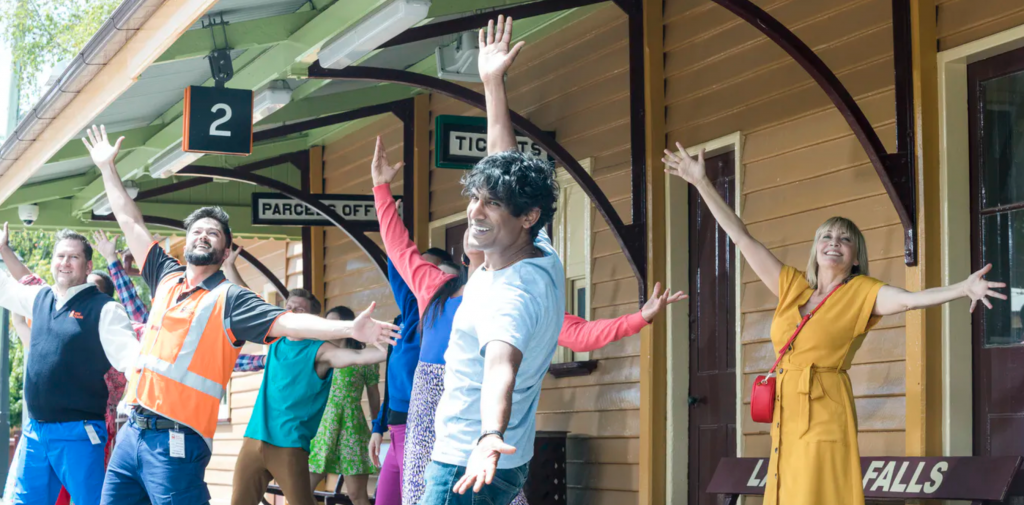
Comedy in this country faces a lot of problems. One of the big ones is that nobody actually wants to make it. Time and again we’re served shows that look like comedies – or worse, are promoted as comedies – only to turn out to be lightweight dramas with a few jokes mixed in. The drama undercuts the comedy, the comedy isn’t funny enough to make up for the lack of drama: can’t wait for season two of Aftertaste.
Wakefield proves that this is a problem that cuts both ways. A series about a bunch of people – staff and patients – at a mental home, it’s basically an anthology series with a lead (you know, the guy in all the advertising) who’s in it slightly less than you might think.
It’s also a drama: the mental patients are all treated as real characters rather than comedy relief, and the issues faced by the staff (the comedy performers are all playing members of staff, like they were in a sitcom that’s been absorbed by a bigger drama) are taken just as seriously. Nobody’s laughing at anyone, which raises the question: what’s Sam Simmons doing here?
Simmons is often entertaining to watch but he’s pretty much a one note performer. While there can be variations in that one note he’s not getting much chance to display them here. Ward is also working according to type (though she gets more to do as the series goes on), and while McElhinney has a bigger role, it’s also a broader one at times. While this obviously isn’t a comedy, by the current standards of “comedy” any or all of their characters would work just fine as written if they were in a comedy.
Over the last decade or so there’s been a lot of pressure on scripted television in Australia to be all things to everybody. With audiences shrinking, producers can’t afford to alienate anyone. Now they’re trying to tick as many boxes as they can, even if the show would be a lot better if it focused on one or two things and did them well. And all the cool kids here loved US shows that mixed drama and comedy like, say, Crazy Ex-Girlfriend or (trigger warning) Louie. The fact they were extremely niche and rated poorly seems to have slipped their notice.
Wakefield isn’t a great drama. Often it’s barely dramatic at all, though it does pick up as it goes along. The perfectly reasonable choice to treat every character with respect (no cheap shots at the mentally ill here) seems to have left the writers struggling to figure out where the conflict is going to come from.
More importantly as far as we’re concerned, having all the medical crew played by comedy performers sets a weird tone that the series doesn’t do much of anything with. They’re the wacky backdrop to the real medical staff, only there’s no real reason for them to be particularly wacky beyond “we’ve got to make this show entertaining somehow”. These are funny performers: why aren’t they doing what they do best? Oh right, because going full comedy would undercut the drama.
Many of the great television dramas have been extremely funny at times. But they usually got laughs because the characters were so well crafted they could – like actual real people – be both funny and serious depending on the situation.
It’s easy to make a comedy character seem deep by giving them a dramatic scene; the real challenge is giving a serious character a funny scene that’s actually funny.
Fisk – Half-time report
The best sitcoms have layers, more than one thing going on at any one time. They don’t just contain some characters saying funny things. There’s also something happening in the background, or there’s a quick shot of a funny prop, or – and this is really hard to articulate, so bear with us – the director’s created the perfect atmosphere for laughs.
What makes a high-quality sitcom is a lot of things done by a lot of people, mainly the writers who came up with the concept in the first place, and whose job it should be to make you laugh often.
So, in Australian sitcom, where it’s sometimes rare that there’s even one thing funny thing happening at one time, Fisk is a show worth celebrating. The first episode was high-quality and full of laughs, so was the second, and so was the third. Usually in Australian sitcom, by the time you get to mid-way through a series, there’s been a dud episode, where the writers have sort of run out of puff before they gear up for whatever the series finale is. Not with Fisk. Unless the dud episode’s coming in episode four. But we doubt it.
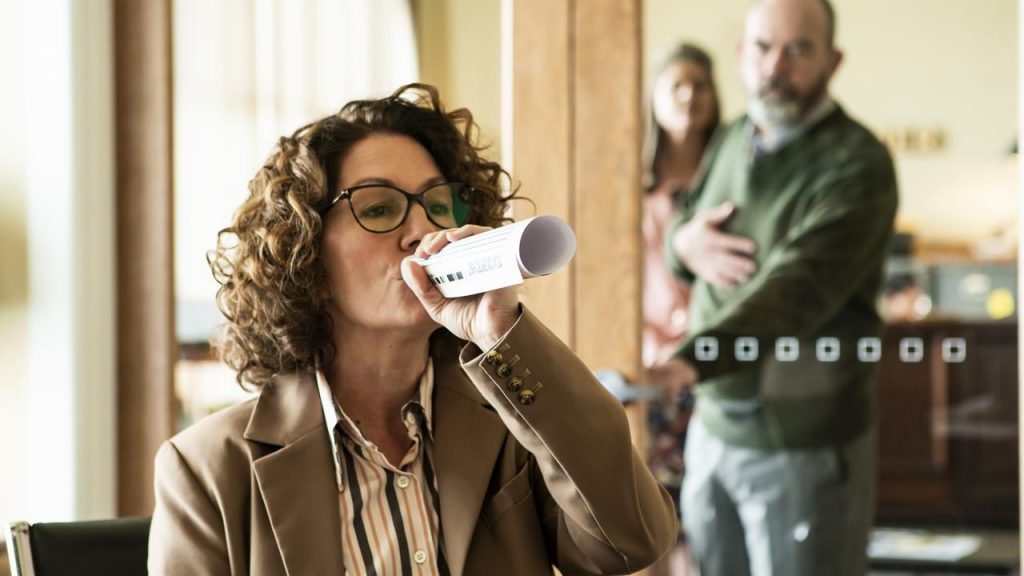
Fisk is a show which builds on what’s happened before, which means that Roz (Julia Zemiro) going around obsessively labelling and signposting everything in the office in episode two, results in small but hilarious sight gags in episode three, like the sign about covering food before it gets heated up in the microwave, which Helen (Kitty Flanagan) pointedly ignores. Then there’s the Ikea desk bought for Helen, which George (Aaron Chen) “hacked”. A cheap desk with its legs on wrong shouldn’t be as funny as it is, but it is in Fisk. Must be that atmosphere we were trying to describe earlier.
Then there’s the character comedy. Helen’s uptight, no-nonsense personality is the perfect foil for all manner of bizarre clients, idiot colleagues, odd family members and tedious ex-husbands, but there’s something quite special about Fisk’s part-parody, part-dissection of office culture. Take the series of vignettes on chit-chat in episode three. Maybe it’s the mere fact that someone’s (finally!) pointing out how stupid it is, the Emporer’s New Clothes finally being revealed for what they really are? Maybe it’s Kitty Flanagan’s “I don’t get this nonsense” gestures versus Julia Zemiro’s exasperated “how can I connect with this woman so I can manage her” expression? Whatever it is, it’s brilliantly played and brilliantly funny.
And there’s more of this to come. How do we know that? We don’t, we haven’t seen the rest of the series, but there’s something about what we’ve seen so far that tells us that this isn’t a show which runs out of good ideas by episode two (Why Are You Like This) or is only really interested in getting us to a dramatic finale in episode six (Aftertaste).
Fisk feels like a show which is in it for the long-haul, which wants to make us laugh for six episodes straight. Because everything from having guest actors like Collette Mann and Marg Downey, to creating a shot where Ray (Marty Sheargold) ends up with a tiny fez-style lampshade on his head in the middle of a meeting, tells us that this show is 100% about the comedy and nothing else.
